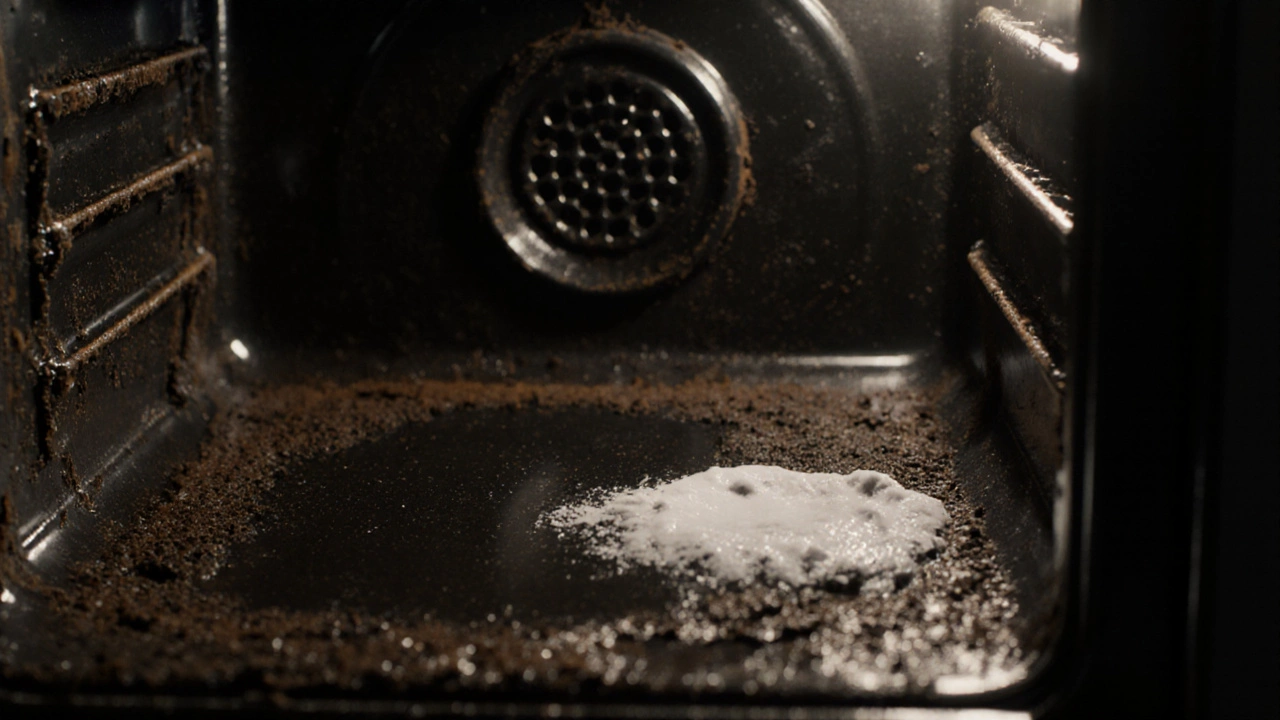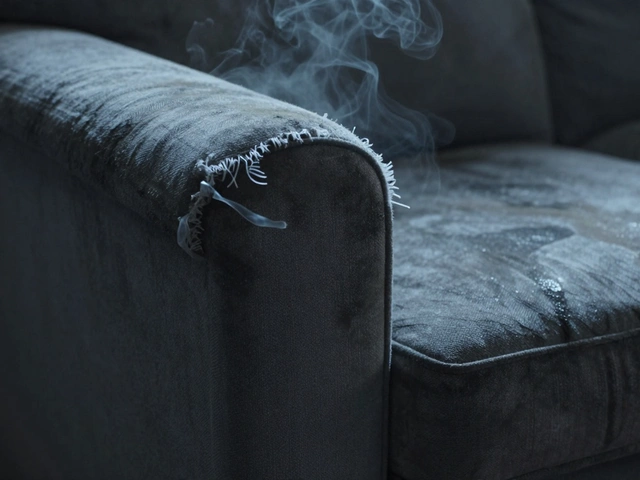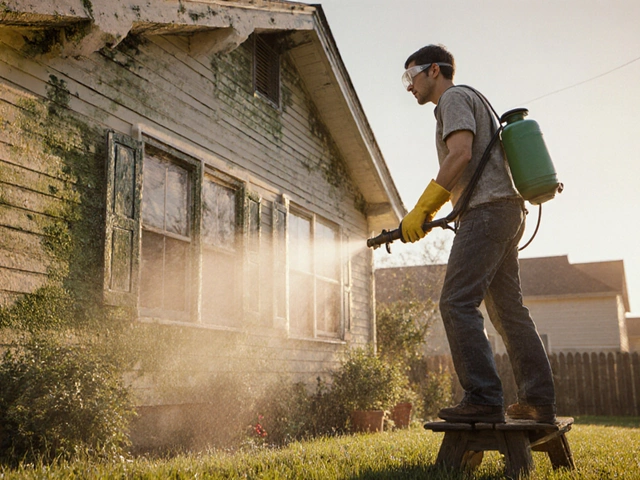Oven Grease Cleaning Method Comparison Tool
Choose Your Oven Situation
Recommended Cleaning Method
Why This Works For You
How To Use
Cleaning Tips for Your Method
There’s nothing worse than looking into your oven and seeing that thick, black, sticky grease that’s been baking for months. You’ve tried scrubbing with a sponge. You’ve used regular dish soap. Nothing moves it. That baked-on grease isn’t just ugly-it’s a fire hazard, smells awful, and makes your oven work harder than it should. So what actually dissolves baked-on oven grease? The answer isn’t always the chemical sprays in the supermarket aisle. Sometimes, the best solutions are the ones you already have in your kitchen.
Why Baked-On Grease Is So Tough to Remove
Baked-on grease isn’t just oil. It’s a chemical transformation. When fat heats up repeatedly, it undergoes polymerization-meaning the molecules link together into long, stubborn chains that bond to metal surfaces. This is why a light wipe after cooking doesn’t cut it. Over time, layers build up, carbonize, and turn into something that feels like tar. It sticks harder than paint. That’s why most store-bought cleaners fail if they’re not strong enough, or if you don’t give them time to work.
Modern ovens have self-cleaning cycles, but those can damage the interior coating over time and release toxic fumes. And even then, they often leave behind a crusty residue. So you need something that breaks down those polymerized fats without harming your oven or your lungs.
Best Chemical Cleaner: Easy-Off Heavy Duty
If you’re going the commercial route, Easy-Off Heavy Duty is the most reliable option. It’s been tested by home economists and cleaning professionals across the UK for over 20 years. Its formula contains sodium hydroxide (lye), which saponifies fats-turning them into soap-and dissolves carbonized grease in under 30 minutes. You don’t need to scrub. Just spray, wait, and wipe.
But here’s the catch: you must ventilate the room. Open windows. Turn on the extractor fan. Wear gloves. And never use it on a hot oven. Always let the oven cool completely first. Also, avoid using it on aluminum parts or self-cleaning oven interiors unless the label says it’s safe. Many newer ovens have special coatings that can be stripped by strong alkaline cleaners.
Best Natural Solution: Baking Soda and Vinegar
You don’t need to buy anything. If you’ve got baking soda and white vinegar, you’ve got a powerful combo. Here’s how it works:
- Remove oven racks and soak them in warm soapy water.
- Mix ½ cup of baking soda with 2-3 tablespoons of water to make a thick paste (like toothpaste consistency).
- Spread the paste over all greasy surfaces-avoid heating elements and sensors.
- Let it sit overnight. Yes, 12 hours. That’s not optional. This gives the baking soda time to penetrate the grease.
- The next day, spray white vinegar over the paste. It will fizz. That’s the acid reacting with the alkaline baking soda, loosening the grease.
- Wipe away with a damp cloth. Stubborn spots? Use a plastic scraper (never metal).
This method won’t kill grease instantly like Easy-Off, but it’s non-toxic, safe for kids and pets, and doesn’t leave chemical fumes. It’s also the method used by professional cleaners who specialize in eco-friendly home services in Leeds and Manchester.
Why Dish Soap Alone Doesn’t Work
Many people think dish soap-like Fairy Liquid-should cut grease because it works on pans. But oven grease isn’t the same. Dish soap is designed for quick rinsing, not for breaking down hardened, carbonized fat. You’ll end up scrubbing for 45 minutes and still see streaks. The heat in the oven changes the chemistry. What’s easy on a frying pan becomes a rock in an oven cavity.
That’s why adding dish soap to baking soda paste can help, but only as a booster. A few drops of dish soap in your paste increases surface tension and helps the solution cling better to vertical surfaces. But it’s not the star. Baking soda is.
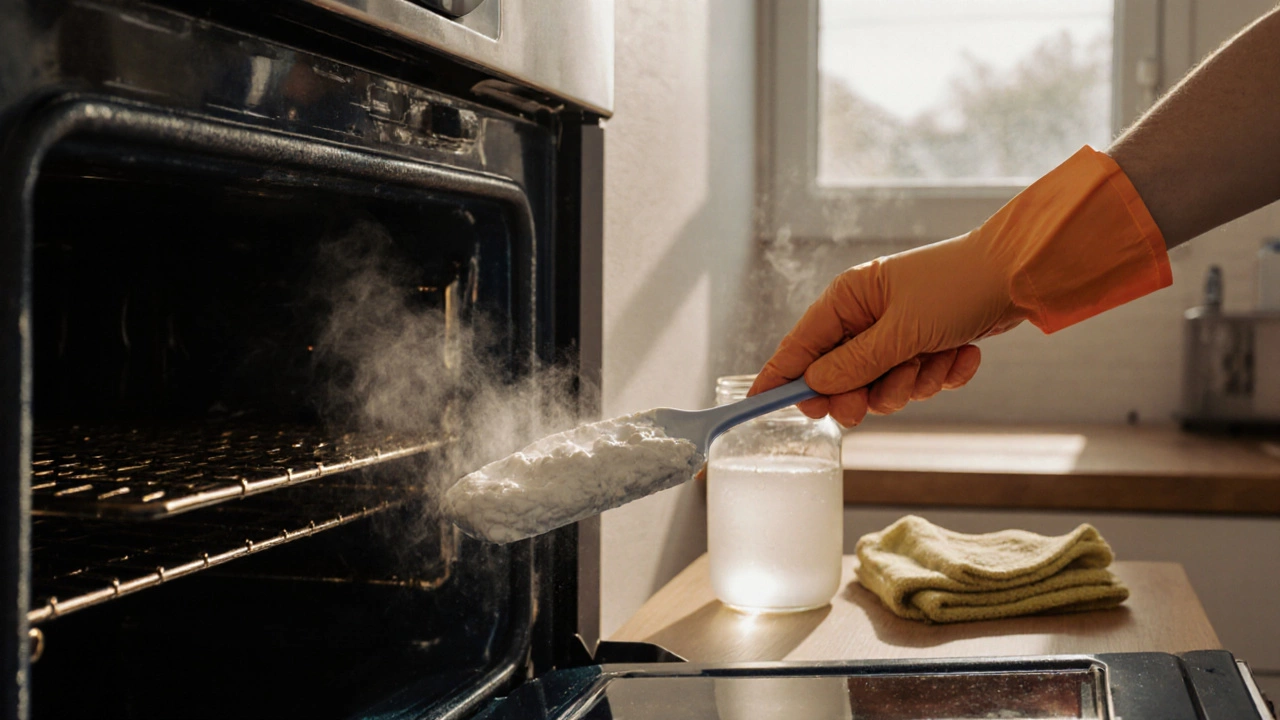
Steam Cleaning: A Quiet Alternative
If you own a steam cleaner with a narrow nozzle attachment, you can use it on oven interiors. High-temperature steam (above 200°F) softens grease without chemicals. It’s slow-expect 45 to 60 minutes-but it’s silent, safe, and leaves no residue.
Here’s how:
- Let the oven cool completely.
- Wipe away loose debris with a dry cloth.
- Hold the steam nozzle 2-3 inches from the surface and move slowly.
- Let the steam sit for 10 seconds per spot before wiping.
- Repeat until grease lifts.
It’s not as aggressive as chemical cleaners, so it’s best for light to moderate buildup. But if you’ve got a steam cleaner already, it’s worth trying before reaching for the harsh stuff.
What Not to Use
Some common myths can damage your oven or make things worse:
- Steel wool or metal scrubbers-they scratch the enamel coating, creating spots where grease will stick even worse next time.
- Clorox wipes or bleach-they react poorly with oven residues and can create toxic chlorine gas.
- Ammonia fumes in a closed oven-yes, some DIYers leave a bowl of ammonia overnight. But it’s dangerous. Ammonia vapors can damage the oven’s electronics and are harmful to breathe.
- Hot water poured directly into the oven-this can crack the glass door or warp metal parts due to thermal shock.
Prevention: Stop the Buildup Before It Starts
The best way to avoid baked-on grease is to clean before it bakes on. After every use, wipe the oven floor and walls with a damp cloth while it’s still warm (not hot). This removes fat before it hardens.
Place a sheet of aluminum foil on the bottom rack to catch drips. Replace it every few weeks. Or use a silicone oven liner-those are heat-resistant and easy to wash in the sink.
Also, avoid cooking high-fat foods like bacon or roast chicken without a tray underneath. Grease splatter is the main cause of buildup. A simple drip pan cuts cleaning time by 70%.
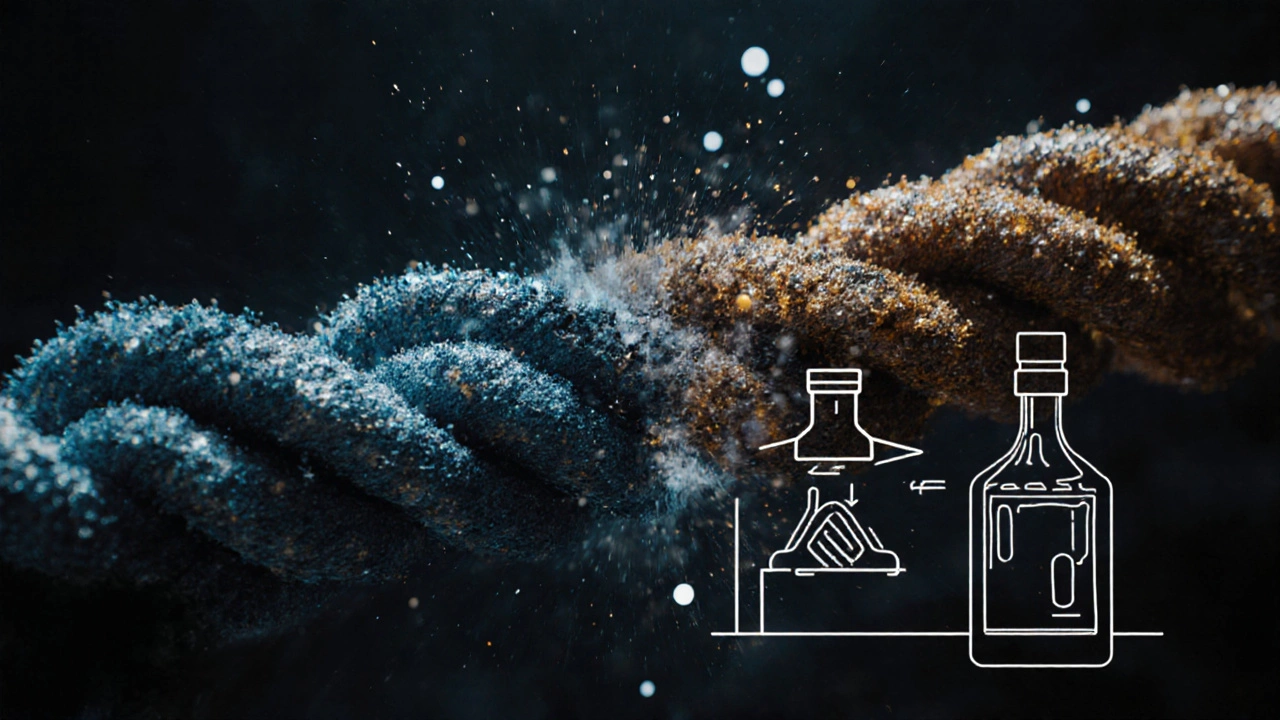
When to Call a Professional
If your oven hasn’t been cleaned in over 3 years, or if you’ve got thick, flaky grease that won’t budge after two rounds of baking soda, it’s time to call in someone who’s done this 500 times. Professional oven cleaners use industrial-grade steam and biodegradable solvents that break down grease without damaging the appliance. In the UK, a full oven clean typically costs £50-£80, and it includes cleaning the door, seals, and racks.
Think of it like an oil change for your oven. Regular maintenance keeps it running efficiently and safely. A dirty oven uses 15-20% more energy to reach temperature. That’s extra cost on your bill every month.
Quick Summary
- Easy-Off Heavy Duty works fastest for thick, old grease-but use with caution and ventilation.
- Baking soda and vinegar is the safest, most effective natural method if you give it time (overnight).
- Steam cleaning is quiet and chemical-free but slower; best for moderate buildup.
- Dish soap alone won’t cut it. It needs baking soda to be useful.
- Never use steel wool, bleach, or ammonia in your oven.
- Prevent future buildup with foil liners, drip trays, and wiping after each use.
Frequently Asked Questions
Can I use vinegar alone to clean oven grease?
No, vinegar alone won’t dissolve baked-on grease. Vinegar is acidic, and grease is alkaline. It needs a base like baking soda to react and break down the fat. Vinegar helps loosen residue after baking soda has done the heavy lifting, but it’s not strong enough on its own.
How long should I leave baking soda in the oven?
At least 8 hours, but overnight (12 hours) is ideal. The longer it sits, the more it penetrates the grease. Rushing it means you’ll end up scrubbing harder and still not getting it all out.
Is it safe to use oven cleaner on self-cleaning ovens?
Check your manual. Most manufacturers warn against using chemical cleaners on self-cleaning ovens because the coating can be damaged. If you must use one, pick a product labeled safe for self-cleaning ovens, like Easy-Off’s Fume Free version. But even then, baking soda is the safer bet.
Why does my oven still smell after cleaning?
Leftover grease or cleaner residue can cause odors. Run the oven at 350°F for 15-20 minutes after cleaning to burn off any traces. Open windows and turn on the extractor fan. If it still smells, you may have missed a spot-check the door seals and corners.
Can I clean the oven glass door the same way?
Yes, but be extra careful. Use the baking soda paste on the glass, but don’t let it dry completely. Wipe it off before it hardens. Avoid abrasive pads. For stubborn spots on the glass, use a razor blade held at a 45-degree angle to gently scrape-just don’t scratch the surface.
